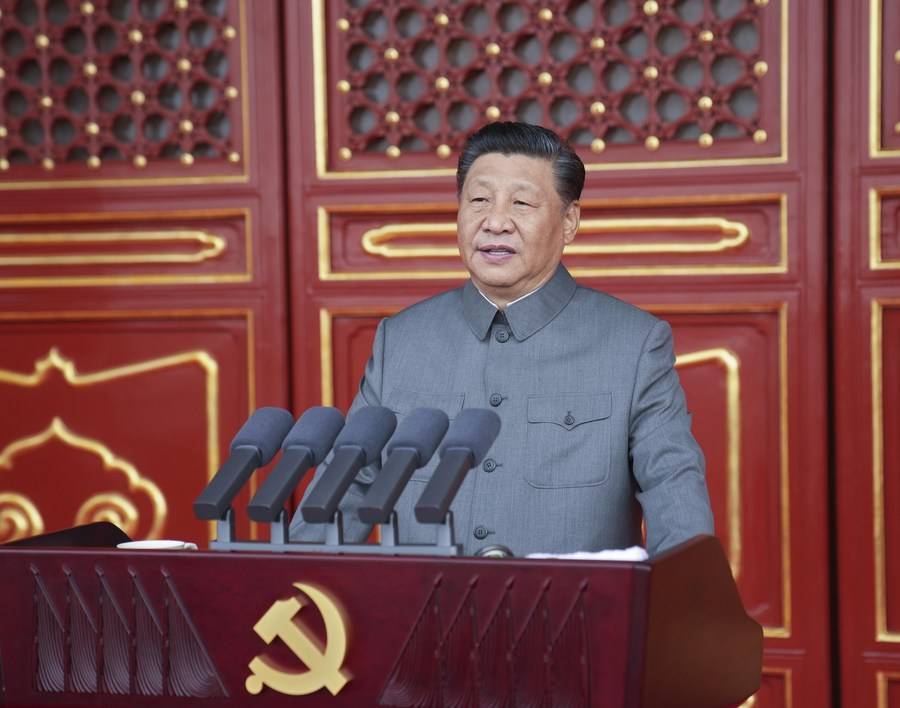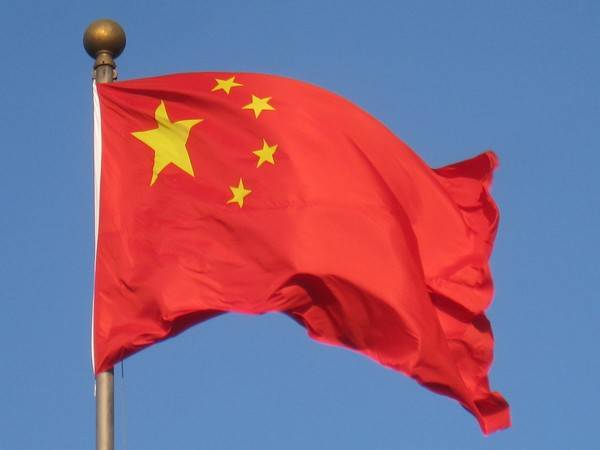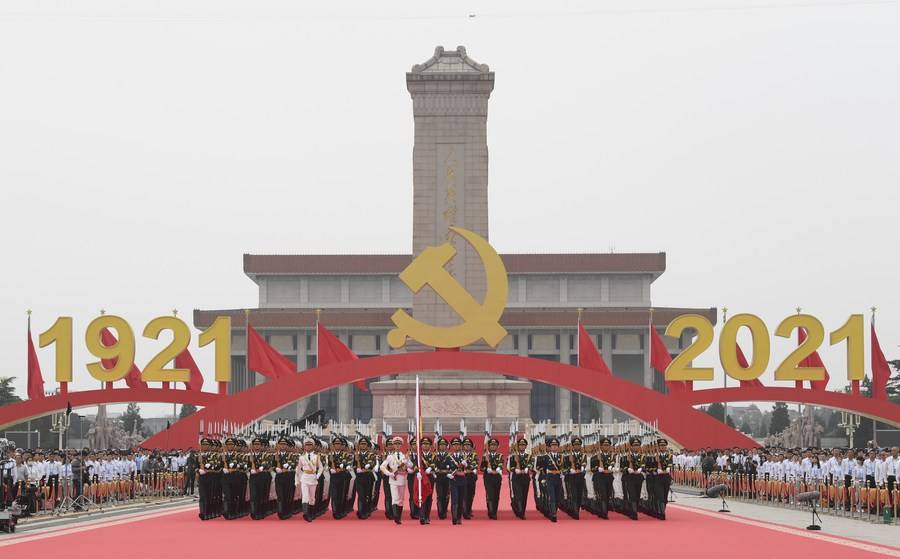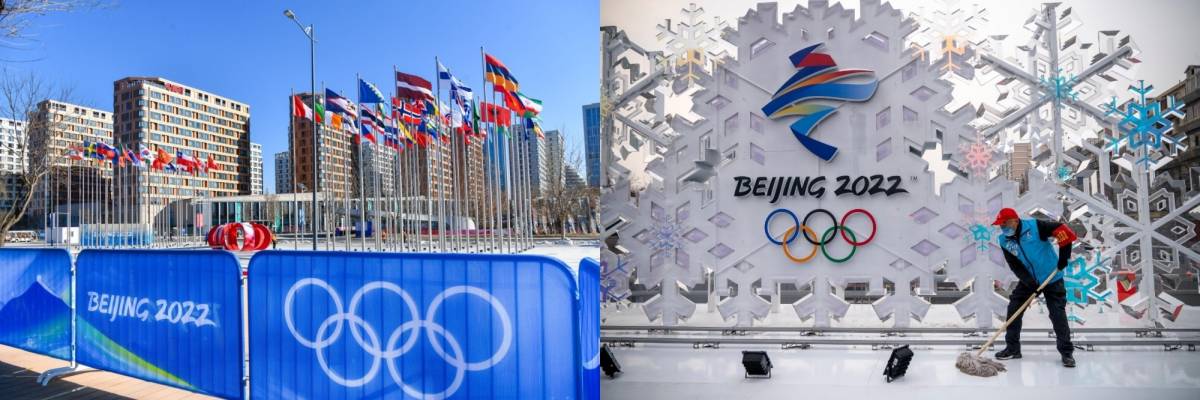The US was first to declare a diplomatic boycott, and it has since been supported partially or fully by the likes of Australia, Belgium, Canada, Denmark, Estonia, Japan, Kosovo, Latvia, Lithuania, the Netherlands, New Zealand, Sweden and the UK…reports Asian Lite News
Two events dominate the Chinese Communist Party (CCP) calendar for 2022 – the Winter Olympics and the 20th Party Congress later this year. China wants both to go smoothly so it can bask in reflected glory. The 2022 Winter Olympics will be wielded as a mighty propaganda tool.
However, things are not so simple for Chairman Xi Jinping, as China is embroiled in worldwide acrimony over harsh treatment of its Uyghur population, its increasing subjugation of Hong Kong, repression of Tibet, illegal territorial claims in the South China Sea, and ramping-up of coercion against Taiwan.
China is pursuing a strict zero-COVID policy, no matter the inconvenience to the populace or the cost to the economy, but there was never any chance of it delaying the Olympics, as happened in Tokyo. The games will run from February 4-20.
Xi said the games “will not only enhance our confidence in realizing the great rejuvenation of the Chinese nation,” but also “show a good image of our country and demonstrate our nation’s commitment to building a community with a shared future for mankind”.
Xi boasted in his New Year’s address, “The world looks forward to China, and China is ready.” It will select only small numbers of Chinese spectators for events, but televised coverage will be carefully choreographed and stage-managed to magnify China’s achievements.

Chinese media have trumpeted those dignitaries from 32 countries will attend the opening ceremony. Heads of state or royalty are coming from: Argentina, Bosnia-Herzegovina, Cambodia, Ecuador, Egypt, Kazakhstan, Kyrgyzstan, Luxembourg, Monaco, Mongolia, Pakistan, Papua New Guinea, Poland, Qatar, Russia, Saudi Arabia, Serbia, Singapore, Tajikistan, Turkmenistan, the UAE and Uzbekistan.
Other dignitaries include United Nations Secretary-General Antonio Guterres, and World Health Organization Director-General Tedros Adhanom Ghebreyesus.
The US was first to declare a diplomatic boycott, and it has since been supported partially or fully by the likes of Australia, Belgium, Canada, Denmark, Estonia, Japan, Kosovo, Latvia, Lithuania, the Netherlands, New Zealand, Sweden and the UK.
China has worked hard to minimize this US-led boycott. Xinhua, for example, wrote, “The so-called US ‘diplomatic boycott’…has turned out to be nothing but a flop and the butt of jokes that are scorned by countries across the world.”
It added, “Any political grandstanding going against the Olympic spirit is detrimental to the interests of all Olympic participants and will fail eventually.”
However, Xinhua conveniently glossed over the fact that China is using the Olympics as a political grandstand to glorify the CCP.
Jason Young – the Director of the New Zealand Contemporary China Research Centre and an Associate Professor at Victoria University in Wellington told ANI: “Similar to the 2008 Summer Olympics, the Chinese leadership places a lot of importance on hosting large international events like the Winter Olympics due to their belief that such events provide positive international coverage for China.”
Young noted that the running of the Olympics has featured heavily in Chinese media, “where the message to people is that China is hosting a very successful international event”.

When asked about the criticism aimed at China, Young explained, “This Winter Olympics has drawn a lot of international criticism due to the diplomatic boycott, uncertainty and strict controls due to COVID, and due to the focus it has put on China’s human rights record, including policies in Hong Kong and Xinjiang. To minimize these criticisms in China, state media have strictly managed stories around the Olympics and officials have criticized foreign politicians for ‘politicizing’ the event.”
The elephant in the room is China’s authoritarian style of governance, which tends towards totalitarian in areas like Xinjiang. The human rights abuse in the latter are the chilling epitome of China “building a community with a shared future for mankind,” to use Xi’s words.
2022 is very different to 2008, when Beijing hosted the Summer Olympics. Gaining in self-confidence and national strength, China does not now seek to mollify critics, but rather to defy and bash them.
Back in 2008, many believed the Olympics would help China open up and slacken its autocratic tendencies, but Xi has no intention of China becoming more like the West. Rather, he wishes that the rest of the world will become more like China, and so the 2022 event is a celebration of the CCP’s strict rule.

ANI asked Young at Victoria University how important the Winter Olympics are to China’s populace. He noted, “It is hard to know just how interested people in China are in the Olympics.”
Of course, that is exacerbated by the fact that negative comments are not tolerated on Chinese social media platforms such as Weibo or WeChat.
Young added, “For state and party officials, the Winter Olympics have been used to demonstrate the successes of Chinese growth and development and to attribute that to the socialist system and the leadership of Xi Jinping and the party. Hosting the Olympics has even been incorporated into the campaign to mark the 100-year anniversary of the party.”
These Olympics are not about China moderating its approach, and anyone who dares speak out on issues such as human rights in China or the plight of Muslims is dealt with ruthlessly.
Even the International Olympic Committee (IOC) seems to fear China’s wrath, as the organization dances to Xi’s tune.
This was very evident in the IOC’s deflection of concerns over the wellbeing of Chinese professional tennis player Peng Shuai, after her brave claims of sexual assault by a former high-ranking CCP member.
Ironically, her alleged perpetrator, Zhang Gaoli, oversaw Chinese preparations for these Olympics for three years prior to his retirement in 2018.
The Olympic Charter calls for “improving the promotion and respect of human rights,” but IOC officials repeatedly claim it is not their place to judge China’s political system. “Don’t mix sports and politics,” is their mantra, as the IOC remains silent over Chinese abuses.
By contrast, the Women’s Tennis Association bravely called out China, canceling all tournaments scheduled there. Individual nations and officials are too afraid of reprisals to speak out. This is China’s vision for mankind’s shared destiny, one where authoritarian governments brook no dissent.

Just how serious are China’s abuses?
In its latest index, the US-based Freedom House dropped China’s score by two points to nine out of 100. It summarized, “China’s authoritarian regime has become increasingly repressive in recent years. The ruling CCP is tightening its control over the state bureaucracy, the media, online speech, religious groups, universities, businesses and civil society associations, and it has undermined its own already modest rule-of-law reforms.”
Freedom House further noted, “Throughout the year, the government pushed ahead with repressive programs aimed at changing demographics and ensuring ‘social stability’ in ethnic minority areas, particularly Xinjiang, Tibet and Inner Mongolia. New evidence indicated the massive scale of projects involving the forced relocation of rural residents, the forced sterilization of Uyghur women, the mass detention of Uyghurs in ‘political re-education’ centers, and the imprisonment of tens of thousands of others by the courts. Credible reports of abuse and deaths in custody also emerged during the year.”
Quite apart from incarcerating more than a million Muslims in concentration camps in Xinjiang, last year some 700,000 Tibetan farmers and nomads underwent a coercive labour program, “whereby Tibetans are forcibly subjected to thought transformation, intrusive surveillance, political re-education, military-style training and punitive punishments”.
The CCP uses carrots as well as sticks, too. For example, it agreed to host United Nations High Commissioner for Human Rights Michelle Bachelet in Xinjiang in the first half of the year, but only after the Olympics. This kind of deferral is typical of China, which has stymied any Bachelet visit to Xinjiang since September 2018.
Naturally, it is a prerequisite that Bachelet’s trip be “friendly” in nature and not an investigation. Furthermore, Beijing stipulated that the body should not publish any report.
One can be sure the CCP will give her an exemplary visit that perfectly supports the CCP narrative that only vocational education centers exist in Xinjiang.

China will not want any world event to detract from the Olympic fortnight, but it cannot wholly control global events. That includes any potential invasion of Ukraine by Russian troops that are currently massing along the border.
Given that President Vladimir Putin will be in China for the games (even though Russia is technically banned from competing due to past doping violations), any possible invasion of Ukraine should be postponed till after that. During his visit, Putin will meet with Xi for private talks and, doubtlessly, Russia’s confrontation with NATO will be high on the agenda.
Dr Euan Graham, Shangri-La Dialogue Senior Fellow for Asia-Pacific Security, said, “Very likely China and Russia are coordinating. European states need to be mindful of this and think beyond the regional level. That means Ukraine and Taiwan are linked, although not hydraulically, and there are still tensions in the China-Russia strategic overlap.”
Dr Malcolm Davis of the Australian Strategic Policy Institute concurred, “Yes, Russia and China have some differences, but they have a common immediate interest in humiliating the US and seeking to end its strategic primacy. That serves both their strategic ambitions.”
Beijing will be intently watching the American and NATO reaction to any Russian military moves against Ukraine. If the response is wishy-washy, this will reinforce China’s view that the USA is weak, and it will perhaps encourage more robust moves against Taiwan.
John S Van Oudenaren, Editor-in-Chief of The Jamestown Foundation’s China Brief, noted how the Ukraine situation presents Xi with difficulties. “As Russian troops mass on the Ukraine border and the odds of a major war in Eastern Europe mount, Xi faces a complex dilemma. On the one hand, he has an immediate interest in avoiding a major international crisis that could destabilize the global economy, and undermine his domestic political position in a critical year. However, he also recognizes an abiding strategic interest in sustaining and deepening the Sino-Russian partnership, which is far more viable if Russia and the West remain at permanent loggerheads”.
“In order to reconcile these two conflicting interests, Beijing has advocated for a diplomatic solution to the ongoing crisis, while simultaneously supporting Moscow’s assertion of privileged security interests in Eastern Europe.”
Publicly, China plays “the Cold War mentality card”, saying the USA and NATO are primarily responsible for tensions in Ukraine. Although Beijing consistently urges a diplomatic solution, its official statements have been sympathetic to Russia. China’s relationship with Russia is a strategic one, and no matter what Moscow does in regards to Ukraine, Xi cannot afford to allow China to become too isolated.
Russian military escalation in Ukraine would bring shocks to oil and metal markets for starters. As the world’s largest crude oil importer, any conflict would certainly dash any chance of Beijing meeting its annual target of 5.5 per cent to 6 per cent economic growth.
China also has flourishing ties with Ukraine via the Belt and Road Initiative. Bilateral trade grew 31.7 per cent to USD 17.36 billion in the first eleven months of 2021.
Interestingly, Russia invaded Georgia just one week prior to the 2008 Beijing Olympics. Could Russia do the same again in Ukraine? Possibly, but 14 years later, China wields a lot more diplomatic clout, and the two countries find themselves increasingly supporting each other against the West.
Van Oudenaren concluded, “Ultimately, the partnership between Russia and China is unlikely to wane any time soon, but the potential for coordinated, proactive Sino-Russian strategic cooperation remains limited. Given their respective interests in revising the status quo in Europe and East Asia, both Moscow and Beijing might benefit from forcing Washington to confront simultaneous foreign policy crises, perhaps at a moment of domestic political crisis in the US. However, the current situation underscores the intense difficulty in synchronizing Chinese and Russian strategies.”
In 2008, Mia Farrow led a campaign accusing China of holding a “genocide games”.
This was due to Chinese support for the Sudanese government that was prosecuting a war in Darfur at the time. In 2022, many would assert that China is a far more worthy recipient of this epithet of “genocide games”. (ANI)

Leave a Reply